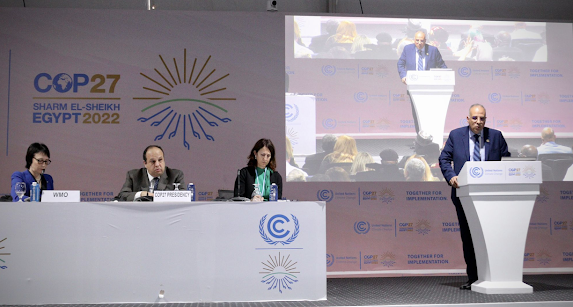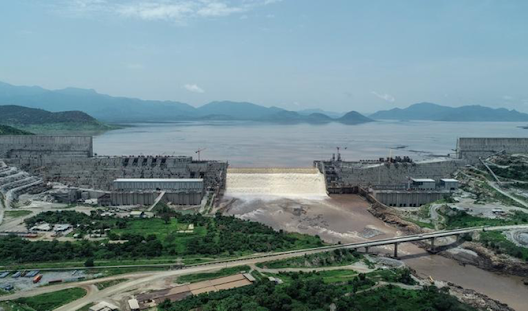Blog 3: COP27: 'Water Politics' or Just 'Politics'...
COP27: 'Water Politics' or Just 'Politics'...
Csaba Kőrösi, the President of the UN General Assembly claimed the 2022 COP ‘is the water COP.’ However, is this really true?
Introduction:
Problems with the global water supply and distribution are inextricably linked to climate change - ‘3.6 billion people face inadequate access to water at least a month per year… [which] is expected to increase to more than 5 billion by 2050’. This is more than half of the entire population on Earth set to experience problems with access to water. Indeed, already 1 out of 10 people cannot rely on their water sources for clean water. This is set to increase as the consequences of climate change become more intense: more pollution, prolonged droughts, more dry wells and more dangerous weather events.
Africa is at the heart of the water crisis. It is said that ‘without accelerated action, ‘80% of African nations are unlikely to have sustainably managed water resources by 2030.’ In fact, this water crisis is so severe that there is currently a ‘$66bn backlog in water and sanitation infrastructure investment’ just in the sub-Saharan region of Africa. Across, the continent, millions of people deal with water-related issues, for example, 90% of Somalians were affected by the 2021 drought. The environment also faces degradation linked to water-related issues. As seen below, Lake Chad has shrunk by nearly 90% since the 1970s.
What happened at the COP27:
Reflections on the COP27:
Now, we must discuss whether these goals are actually feasible. Indeed, the success of such an event is reliant upon the host country’s ability to host. ‘As the Nile is still the backbone of the Egyptian economy’, it is no surprise that water was Egypt’s priority. However, despite this emphasis on water, it was rumoured that negotiations were ‘going badly, amidst tensions between developed and developing countries over financing.’ Failing to negotiate at an event set up for negotiating is not the most positive of things we may want to hear, especially when the President of Egypt said the country ‘would not spare any effort to ensure COP27 became the moment to world moves from negotiation to implementations.’
We should not forget to mention the absolute irony of the COP27: with all these negotiations, 45,000 delegates, and political leaders (some there just to keep up appearances), it still seemed this event was used as a marketing opportunity for the elite. Why? Well, Rishi Sunak only showed up for one day (after refusing to go), Joe Biden stayed for a few hours and what was the point in China being there if they ‘refused to contribute to the fund’ concerning loss and damage? The tweet from Jacob Rees Mogg really sums up the irony of this situation: one day the COP is a waste of time and the next it is your ticket to popularity.




This was quite an informative assessment of COP27 this year. I enjoyed reading it. My post about COP27 too focussed on the underwhelming response taken in regard to the water crisis. However, this post goes into more detail about whether or not any of the commitments made can be followed through by the people who make them. It raises an important conversation about what the purpose of COP truly is for those who attend it. Do they really seek to save the environment or is COP only a publicity stunt for them?
ReplyDelete